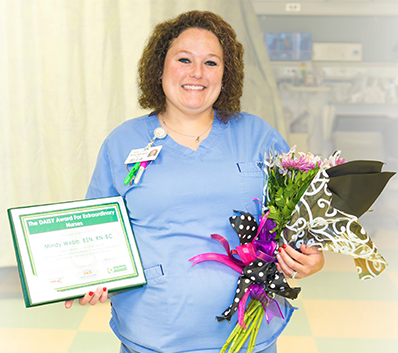Imaging Services
Medical Center Hospital provides professional, caring imaging and diagnostic services. The technologists performing these exams have completed a rigorous course of education and are certified by one or more national agencies. Medical Center Hospital can provide quick and accurate results to your physician, convenient hours, easy access within the hospital and a knowledgeable staff. Valet parking is available at the main entrance of Medical Center Hospital and the Wheatley Stewart Medical Pavilion.
Our Services
We offer the following imaging services:
- Computed tomography (CT) scans: CT is an X-ray procedure enhanced by a computer. A CT scan gives your doctor a 3-D view, referred to as a “slice,” of a particular part of your body and is able to show both bone and soft tissue. Some patients are given a special liquid called a contrast media, which can highlight various body parts on the scan. This liquid only stays in your body a day or two. It is normal to feel a warm sensation as the contrast media makes its way through your body. You may also experience a distinct smell or taste, but it will only last a minute.
- Magnetic resonance imaging (MRI): MRI is an advanced medical imaging technique used to produce clear pictures or images of the body. Using powerful magnetic fields, radio waves and computers, MRI provides an excellent way to diagnose diseases of the brain, spine, chest, abdomen, bones, joints, pelvis, and blood vessels. Medical Center Hospital provides 2 MRI units. Both units employ “short bore” technology to maximize patient comfort, especially for claustrophobic patients. Music through headphones is available to make the experience more pleasant. MRI cannot be performed on patients who have pacemakers or ferrous (magnetic) metals in his/her body. If you have brain aneurysm clips, we will need further information to determine if the MRI can be performed.
- Magnetic resonance angiography: The MRI units at Medical Center can provide MR Angiography. MR Angiography is a non-invasive study of arteries and veins in the brain and/or body.
- Nuclear medicine: These scans help diagnose thyroid, bone, lung, liver, gallbladder, or heart diseases. Nuclear Medicine uses small amounts of radioactive tracers to image the body. It looks at the structure and function of the body to help in the diagnosis and treatment of diseases and disorders. After ingestion or injection of a radionuclide, the patient is scanned by a special gamma camera which records the radioactivity of specific organs. With the assistance of special computers, the results of the scans are analyzed by a physician.
- Interventional radiology: These special Procedures utilize minimally invasive image-guided techniques to diagnose and treat disease. Special Procedures use CT, ultrasound, and fluoroscopy to direct interventional instruments, such as catheters and stents, throughout the body via arteries and veins. With the use of interventional radiology, many conditions that once required surgery can now be treated non-surgically by the interventional radiologist and his team. Minimally invasive techniques are proven to speed up recovery times, shorten hospital stays, and reduce infection rates.
- Ultrasound: Also referred to as a sonogram and/or sonography, ultrasound utilizes high-frequency sound waves to image various areas of the body. It is the method of choice to image a fetus as there are no known side effects to ultrasonography. During the procedure, a warm gel will be placed on the skin and a tool will be placed and moved on your skin to produce images. Ultrasound is painless, and the average exam length is 30 minutes.
- Diagnostic radiology: Using ionizing radiation, a localized beam of x-rays passes through the part of the body being imaged, and that image is recorded electronically. Commonly performed exams are upper gastrointestinal exams (UGI), barium enemas (BE -colon exam), intravenous pyelograms (kidney x-rays), chest x-rays, and any bone exams.
- Positron emission tomography/computed tomography (PET/CT): A non-invasive test, PET/CT accurately images the biological function of the human body. PET/CT gives information about the body that is not available with other imaging techniques. Unlike X-rays, CT scans, or MRI, which show the body structure, PET/CT reveals biological function. This provides your doctor with potentially life-saving insight. PET/CT scans can differentiate benign versus malignant tumors, check whether cancer has spread, monitor the success of therapy, and assess the aggressiveness of a tumor. In a single scan, your physician can examine your entire body, making it easier for your doctor to diagnose problems, determine the extent of disease, prescribe treatment, and track progress. Because changes in metabolism occur before anatomical changes are apparent, PET/CT often reveals illnesses much earlier than conventional diagnostic procedures. This may eliminate the need for ineffective or unnecessary surgeries, treatments, or other diagnostic tests. It will often significantly reduce medical costs, patient discomfort, and potential complications.
- Mammography: A complete line of breast imaging is offered at our Center for Women’s Imaging located in the MCH Professional Building at 318 N. Alleghaney.
Registering for Your Imaging & Diagnostic Appointment
Regardless of whether your physician has provided you with written orders or has sent your orders directly to MCH, all patients must first register before receiving services. We encourage you to call ahead of time and pre-register. This will reduce your wait time when you come for your exam. Also, ask your physician’s office if your insurance requires authorization. Certification with authorization must be performed by your doctor’s office prior to the exam, not at the time of registration. When arriving at the hospital, do not go directly to the department or nursing unit, please go to the registration area to sign the required paperwork.
If you would like to know the exact location of your imaging services, please call (432) 640-1285.


